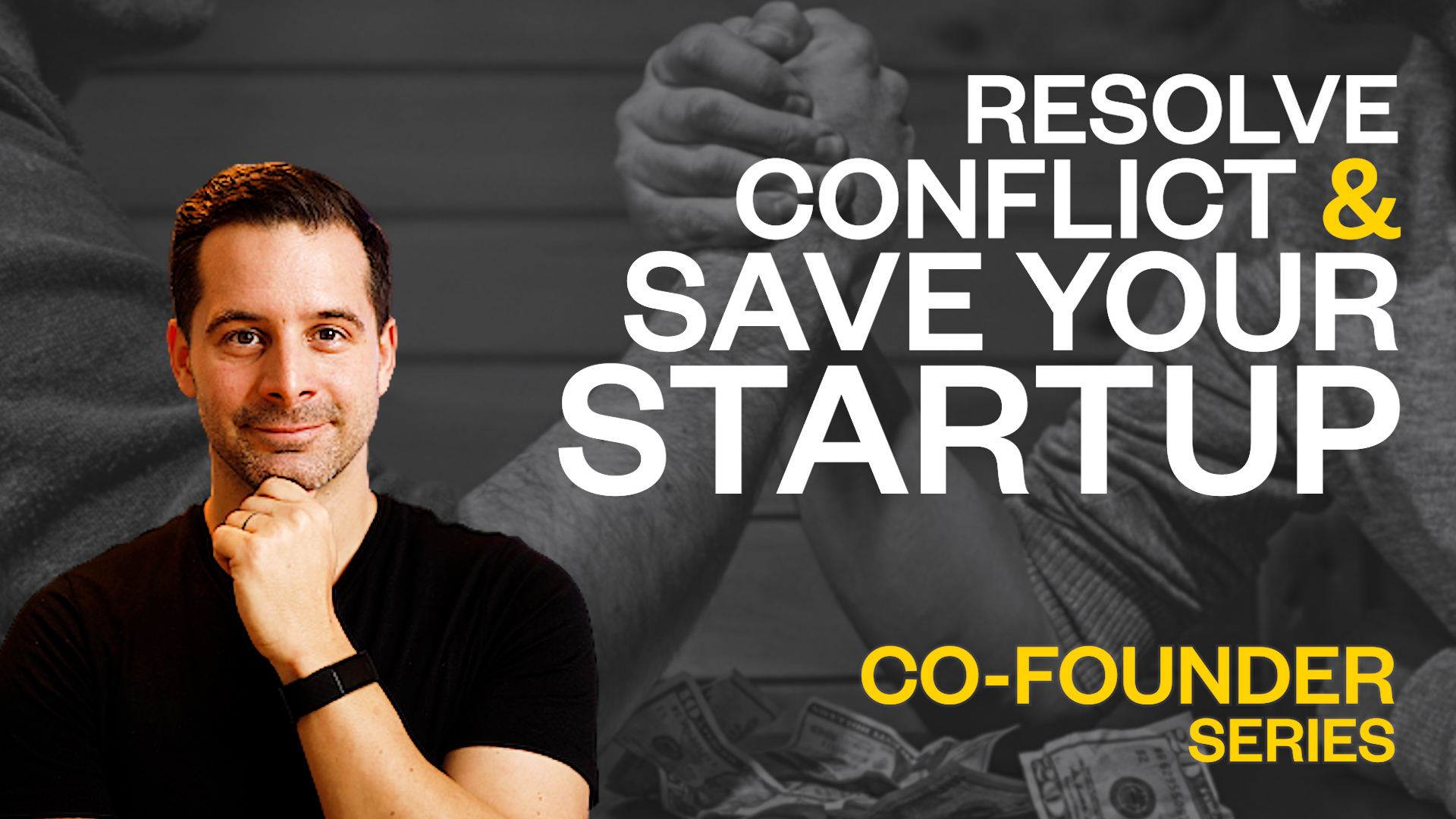65% of high-potential startups fail as a result of conflict among co-founders – that’s the conclusion Harvard Business School professor Noam Wasserman arrived at after studying 10’000 founders for his book “The Founder’s Dilemma”. So if you’re planning on starting a business with someone or already have done so, knowing how to engage in conflict is essential to surviving and thriving your business. Here are some tips on what to do if things go wrong between co-founders.
Video Transcript
Hey, welcome to the third part of this experiment where I’m trying to answer. The three most commonly asked questions about co-founders that I get, while I’m walking down to the lake from my home. We’ve already covered ‘How and Where Do You Find Your Co-Founder’ in the first episode, and click here if you want to check out that episode. In the second episode, I talked about ‘How Should You Split Your Equity’ amongst you and your co-founders. If you want to check out that episode, click on the link. And now in this episode, the final one.
I’m almost at the lake, we’re gonna talk about what to do if things don’t go well and don’t work out as planned with your co-founders. So it’s not uncommon for us to see that within the first years of your startup, you hit a wall: There is some sort of conflict if you and your co-founders, either you don’t get along anymore, something personal happens, your priorities shift, whatever the reason may be, that you and your co-founders decided it’s probably not the best idea to continue, as you have in the past.
Now, these situations are crucial, because they can mean life or death for the startup and for all the employees that are part of the project. So it’s important to keep a cold head. I’ve personally been in situations where I was one of the founders and the team didn’t work out. And so I know it’s not an easy decision to make. And it’s not easy to figure out how to go forward from there. Some of the things that I’ve learned is to not only think about your own interests, but also think about how, and what’s best for the company overall. It’s very likely that at this point, you already have some employees. And so it’s important to not only think about your best interest but also about the interest of everyone that works and has worked from the company at this point, some of the things that have helped me is to chat with people outside the company, and not just people inside the company.
Sometimes it has helped me to get a fresh perspective, write down how I see things, how I think about the current situation to bring my thoughts about what the issue is to paper. Once I had done that, sometimes it has helped me to openly discuss things with my co-founder and after having processed what’s inside of me and how I think about the current situation that really got us halfway to the solution. So sometimes that has been a very good tool, and we were able to turn things around. In most cases, it will probably mean some sort of change, it will mean one of you might change their role, their involvement in the company. But it could also mean one of you just leaves the project.
I’ve gone through both scenarios. And personally, I’ve learned that the most important thing is to make a step forward, whether that means a change of economics, change of role, a change of life. But it’s important to move forward. Because what I’ve experienced was that these things get to my core. They take up a lot of energy from me that I should otherwise be using for the good of the company. As a last resort, I think it doesn’t hurt to involve people that try to meditate, someone like your investors, your VC, some of your angels, or maybe an advisor to the company is someone that can sometimes offer a third perspective and help you reconciliate things.
So in short, if you run into a situation where you don’t feel comfortable anymore, where you think things are just not working out as they should at the company, don’t be afraid to bring those thoughts up, discuss them with your co-founder, discuss them with your team, but also discuss them with people outside the company, your friends, your family, and potentially your investors. And with that, I’ve made it to the lake beautiful view. I’m going to take some time to relax and think now and hopefully, this was helpful. This was the third part of this mini-series on co-founder questions. If you have more questions regarding your co-founders or otherwise, please leave them in the comments.
And with that, have a beautiful day, stay curious and I’ll talk to you soon.




